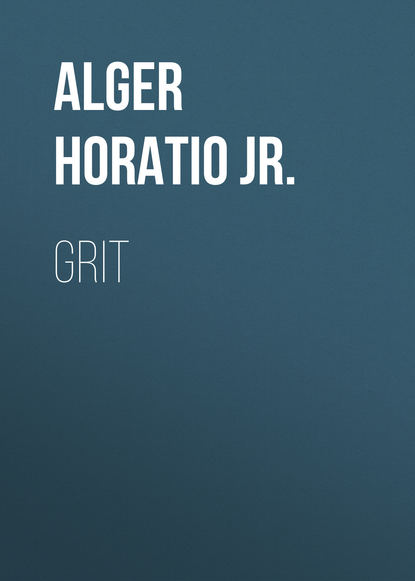По всем вопросам обращайтесь на: info@litportal.ru
(©) 2003-2024.
✖
Grit
Настройки чтения
Размер шрифта
Высота строк
Поля
"She is very good-looking, and five times as polite as Phil," thought Grit, fixing his eyes admiringly upon the pretty face of Marion Clarke, as he afterward learned her name to be.
"I shall be glad to have you as a passenger," said our hero, but he looked at Marion, not at Phil.
"Thank you."
"If you've got through with your compliments," said Phil impatiently, "we'd better start."
"I am ready," said Grit. "May I help you in?" he asked of Marion.
"Yes, thank you."
"It is quite unnecessary. I can assist you," said Phil, advancing.
But he was too late, for Marion had already availed herself of the young boatman's proffered aid.
"Thank you," said Marion again, pleasantly, as she took her seat in the stern.
"Why didn't you wait for me?" demanded Phil crossly, as he took his seat beside her.
"I didn't want to be always troubling you, cousin Phil," said Marion, with a coquettish glance at Grit, which her cousin did not at all relish.
"Don't notice him so much," he said, in a low voice. "He's only a poor boatman."
"He is very good-looking, I think," said Marion.
Grit's back was turned, but he heard both question and answer, and his cheeks glowed with pleasure at the young lady's speech, though it was answered by a contemptuous sniff from Phil.
"I don't admire your taste, Marion," he said.
"Hush, he'll hear you," she whispered. "What's his name?"
By way of answering, Phil addressed Grit in a condescending tone.
"Well, Grit, how is business to-day?"
"Rather quiet, thank you."
"You see, he earns his living by boating, explained Phil, with the manner of one who was speaking of a very inferior person.
"How much have you earned now?" he asked further.
"Only twenty cents," answered Grit; "but I suppose," he added, smiling, "I suppose you intend to pay me liberally."
"I mean to pay you your regular fare," said Phil, who was not of a liberal disposition.
"Thank you; I ask no more."
"Do you row across often?" asked Marion.
"Sometimes I make eight or ten trips in a day. On the Fourth of July I went fifteen times."
"How strong you must be!"
"Pooh! I could do more than that," said Phil loftily, unwilling that Grit should be admired for anything.
"Oh, I know you're remarkable," said his cousin dryly.
Just then the wind, which was unusually strong, took Phil's hat, and it blew off to a considerable distance.
"My hat's off!" exclaimed Phil, in excitement. "Row after it, quick. It's a new Panama, and cost ten dollars."
CHAPTER III.
THE LOST HAT
Grit complied with the request of his passenger, and rowed after Phil's hat. But there was a strong current, and it was not without considerable trouble that he at last secured it. But, alas! the new hat, with its bright ribbon, was well soaked when it was fished out of the water.
"It's mean," ejaculated Phil, lifting it with an air of disgust. "Just my luck."
"Are you so unlucky, then?" asked his cousin Marion, with a half smile.
"I should say so. What do you call this?"
"A wet hat."
"How am I ever to wear it? It will drip all over my clothes."
"I think you had better buy a common one in Portville, and leave this one here to dry."
"How am I going round Portville bareheaded?" inquired Phil crossly.
"Shall I lend you my hat?" asked Marion.
"Wouldn't I look like a fool, going round the streets with a girl's hat on?"
"Well, you are the best judge of that," answered Marion demurely.
Grit laughed, as the young lady glanced at him with a smile.
"What are you laughing at, you boatman?" snarled Phil.
"I beg your pardon," said Grit good-naturedly; "I know it must be provoking to have your hat wet. Can I help you in any way? If you will give me the money, and remain in the boat, I will run up to Davis, the hatter's, and get you a new hat."
"How can you tell my size?" asked Phil, making no acknowledgment for the offer.
"Then I will lend you my hat to go up yourself."
Phil's lip curled, as if he considered that there would be contamination in such a plebeian hat. However, as Marion declared it would be the best thing to do, he suppressed his disdain, and, without a word of thanks, put Grit's hat on his head.











